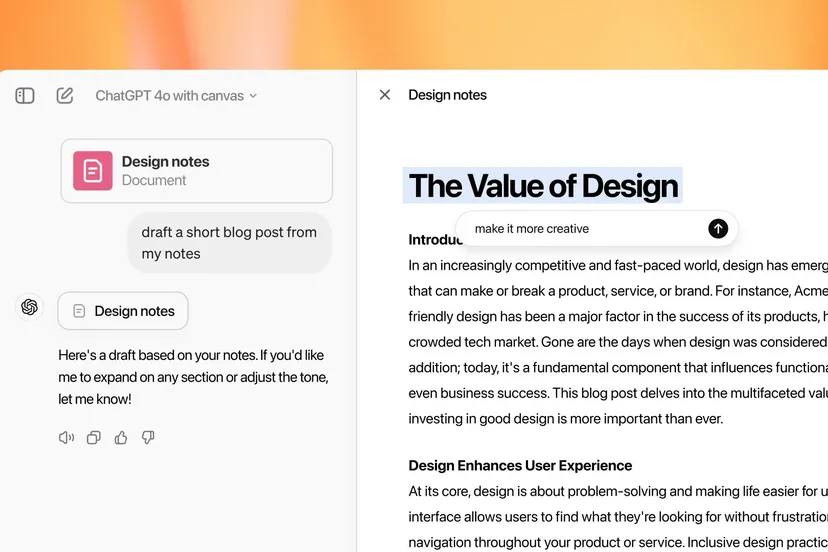OpenAI has launched a new “canvas” interface for ChatGPT that allows users to adjust sections of text or code generated by the chatbot in a side-by-side collaboration. Canvas opens a separate editing window next to the existing ChatGPT chat box, which can be used to manually change text or code, or highlight specific sections to better target editing suggestions and feedback from ChatGPT.
“With canvas, ChatGPT can better understand the context of what you’re trying to accomplish,” OpenAI said in its announcement. “Making AI more useful and accessible requires rethinking how we interact with it. Canvas is a new approach and the first major update to ChatGPT’s visual interface since we launched two years ago.”
ChatGPT canvas provides users with a menu of shortcuts for suggesting inline edits, quickly checking grammar and clarity, and adjusting the length and reading level of text. Some coding-specific shortcuts are also available for debugging, adding logs and comments, and translating code into other languages. It’s a similar concept to the “Artifacts” feature that rival AI developer Anthropic rolled out for Claude in August.
Prior to this, ChatGPT users would typically need to repeatedly input new prompts to refine what the chatbot spat out. Canvas sounds a lot less tedious and gives users some additional control. It provides a back button that can restore previous versions of work, and OpenAI says it’s optimizing when canvas will automatically activate — such as making it less likely to trigger for coding tasks to avoid disruptive power users.
The canvas interface is currently in beta and can be accessed by selecting “GPT-4o with canvas” under ChatGPT’s model picker drop-down menu. It’s rolling out globally to ChatGPT Plus and Teams users, with access being expanded to Enterprise and Edu users next week. When it’s out of beta, canvas will be available for ChatGPT’s free users and automatically open “when ChatGPT detects a scenario in which it could be helpful,” according to OpenAI.

